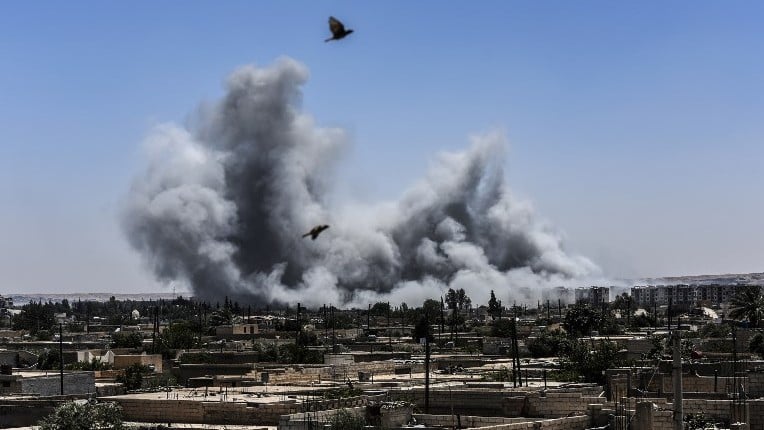A significant escalation in hostilities was reported on Thursday, following Israeli air strikes in and around Damascus that resulted in the deaths of at least 20 individuals. Among the deceased were Palestinian militants and fighters backed by Iran, as the violence intensifies in the context of the ongoing conflict involving Lebanon.
The air strikes coincided with an official visit to Damascus by Ali Larijani, a high-ranking adviser to Iran’s supreme leader, Ayatollah Ali Khamenei, who held discussions with Syrian President Bashar al-Assad. This timing has led analysts to view the military action as a strategic message directed towards Iran.
The Syrian Observatory for Human Rights, a war monitor based in the UK, reported that the strikes primarily targeted the Mazzeh neighborhood and the town of Qudsaya, both situated in the vicinity of the Syrian capital. The Observatory confirmed that 20 people were killed, while an additional 21 individuals suffered injuries in the aerial assaults. The Mazzeh neighborhood, which houses embassies, United Nations offices, and various security headquarters, has previously experienced similar strikes attributed to Israel.
Specific details revealed that the air strikes in Mazzeh led to the destruction of three multi-storey buildings, resulting in the deaths of 10 individuals, including three civilians and two fighters from Iran. Meanwhile, in Qudsaya, Israeli jets targeted an apartment complex occupied by Palestinians, which resulted in another 10 fatalities, including three members affiliated with the Palestinian Islamic Jihad movement.
In a somewhat rare admission, an Israeli military spokesperson confirmed that the air strikes were aimed at military bases of the Islamic Jihad in Syria. The group has been actively engaged in fighting alongside Hamas against Israeli forces in the ongoing conflict in Gaza.
Rami Abdel Rahman, who heads the Syrian Observatory, emphasized the significance of the strikes coinciding with Larijani’s visit, interpreting it as a calculated message towards Iran, albeit not aimed directly at the adviser. Following his engagements in Damascus, Larijani is scheduled to continue his visit to Beirut, where meetings with Lebanese Prime Minister Najib Mikati are anticipated.
Earlier reports from Syria’s defense ministry indicated that the Israeli strikes resulted in 15 fatalities, specifically targeting residential buildings in the Mazzeh neighborhood and the surrounding Qudsaya region. State media outlet SANA released footage showing the aftermath, with plumes of smoke engulfing streets.
This latest wave of attacks marks a continuation of Israel’s strategy to counter Iranian influence in the region. Just weeks prior, a strike in Mazzeh reportedly killed seven civilians and was said to have targeted a structure used by Iranian Revolutionary Guards and Hezbollah fighters. An April incident involved the destruction of Iran’s embassy consular annex in the same neighborhood, claiming the lives of seven Iranian Revolutionary Guards members. That incident prompted Iran to launch its first direct strike on Israel, escalating tensions further.
Amid the complex web of alliances in the region, Iran and Lebanon’s Hezbollah have played pivotal roles in supporting the Syrian government throughout the ongoing civil war, which began in 2011. While Israeli authorities typically refrain from commenting on individual air strikes, they have consistently reiterated their commitment to preventing Iran from increasing its foothold near its borders.





